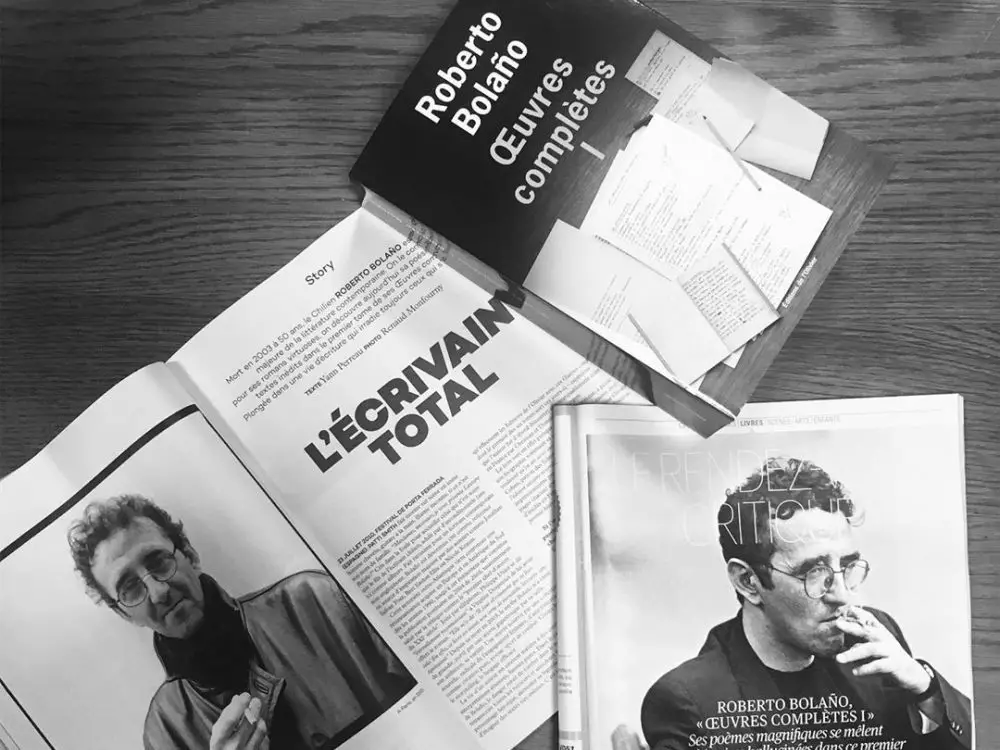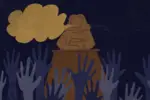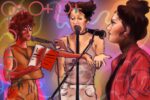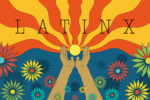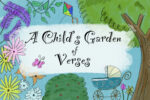If there is a way to describe Roberto Bolaño’s literature, it is that it brings a humanity to the reader. By this, I mean that the sum of Bolaño’s readings, circumstances, obsessions, contradictions, passions, losses, dreams and defeats are embedded in his writing. But it is his humanity, and through his perspective that he captivates the reader.
Bolaño is notorious for not having a sense of nationality. He stated in an interview that he considers his children his homeland. And you can see in his novels and poems that there is an ever-present shadow of alienation, solitude and desperation.
Early Years
Bolaño was born in Chile in 1953. His father was a truck driver and part-time boxer and his mother, a teacher. His parents had a devastating relationship, separating and coming back together most of the time. This had an impact on Bolaño who was dyslexic and had problems in school.
His parents were never big readers and he mentions the times he caught his dad reading cowboy pocket novels and his mom reading bestsellers. So, he considered himself the black sheep in his family. The idea of moving to Mexico City seemed like a way out from their problems, a new beginning. So, they moved to Mexico when he was 14 years old.
https://www.instagram.com/p/B9INL-XHxDn/?utm_source=ig_web_copy_link
In the beginning, adapting was not easy for Bolaño. He describes in an interview that the first day of class he was challenged to a fight by a Mexican kid who was much smaller than him. He knew that he could knock the guy out easily, but he also knew that if he did, the whole clan would have gotten him back. So, Bolaño cleverly reacted by conducting the fight to a draw, and they ended up becoming good friends after that. Bolaño considers the event as an “Aztec baptism.”
Bolaño dropped out of his studies when he was 16 years old — something that put his parents in a state of anxiety. He said, “I dropped out of school because I wanted to be a writer and I was going to build my own curriculum.” He also stated that the curriculum didn’t consist of just books or libraries, but also a way of life — the life he had to forge as a writer.
Political Involvement
In 1973, Bolaño left Mexico and headed towards Chile to help build the revolution by supporting the democratic socialist government of Salvador Allende. The successor in government was Augusto Pinochet, an extreme right winger who ended up having a ruthless dictatorship in Chile from 1973 to 1990. Pinochet was notorious for persecuting leftists, socialists and political critics resulting in thousands of executions, forced disappearances, torture and over 80,000 people put in prison.
Bolaño considered himself a Socialist, not a Communist, but there was only one communist branch associated with the revolutionaries. He described the branch as very unorganized. His first mission consisted of him riding a bike on the empty streets during the takeover and spying on the house of a right winger.
He describes the situation as unheroic, even though being there and getting caught meant death. In an interview, Bolaño stated, “When it comes to my participation during the takeover in September eleven, I don’t know If I want to burst out laughing or cry.”
Eventually, Bolaño was captured by the military and put in prison. After eight days of captivity, he was lucky enough to find an old friend from school who was working as one of the security guards. He escaped with the help of his friends and fled back to Mexico.
On Writing
Bolaño was a notorious book thief during his teenage years in Mexico City. During the beginning of his writing career, he only wrote poetry — something he considered to be good, but most importantly, what interested him was wanting to live as a poet. Being a poet meant being a revolutionary. It meant being completely open to any cultural manifestation, any sexual expression, drugs, anything. It meant being part of a universal brotherhood. Something that he later considered to be completely utopic.
As a writer, he thought that in order to write anything, one needs to live many years. Bolaño worked almost every low-end job there could possibly be, except being a prostitute or a hired assassin. But he stated that he didn’t get any merit working on those jobs and he didn’t become a writer for the lower class either. He considered his identity as one of a purist and an original.
Bolaño experienced alienation when it comes to his identity. The Spanish writers didn’t consider him Spanish. The Mexican writers didn’t see him as a Mexican writer and he didn’t consider himself a Chilean writer. He considered himself a poet from the Spanish language. He thought that it was absurd to split same language literature by countries because the base of Chilean literature was based on Quixote and Cervantes. The same goes for most of Latin American literature.
On Writers
Bolaño’s main literary influence is the Argentinian writer, Jorge Luis Borges. He considered him to be the center of the canyon of Latin American Literature. He claims that the chronology of the great writers of the Spanish language goes as follows: Cervantes, Quevedo and Borges at last. This said, Bolaño considers this to be a tragedy for Latin American literature.
Bolaño thought that writing poetry is one of the hardest things you can do. Of course, this means writing good poetry. And so, in the poetic panorama, out of a thousand poets, there are only two real ones, he thought. Similarly, Bolano believed that the writers of today believe that their work will stand the test of time. That they will become immortal. But this, he believed, was complete ignorance with respect to the history of literature.
He asserted that since 1910 there are only one or two Chilean writers that could be recognized, and that encompasses more than a hundred years of thousands of poets publishing their work. Bolaño thought that literature was extremely cruel, much like a slaughterhouse. He thought that it is a game of statistics, since out of one good literary generation, only two or three writers survived.
A Takeaway
Bolaño thought that the whole world is on the lookout for a dream. He thought that we are in the pursuit of happiness, since we all want to be happy. We have different goals in life, but in the end, we all strive to be happy. But I believe that Bolaño was captivated in the illusion of this dream, in the mirage that surges from this pursuit. The wandering and the desperate pursuit are ingrained in his novels, but I think that the overall statement captures a sort of unity — something that makes us more human.
I believe that understanding Bolaño’s novels make us understand more about the human condition. It makes us understand how someone who doesn’t have a nationality feels in a foreign country.
https://www.instagram.com/p/BZYt9S1j55Q/?utm_source=ig_web_copy_link
It makes us feel the intense isolation that comes from being a poet, a writer and an artist. It teaches us about sacrifice. About the will to drop everything and strive to get closer to purity and the stuff dreams are made of. But most importantly, it connects us to the feelings we all experience but neglect most often in life. The surges of intense pain, sadness and isolation that arise from extreme selfishness or an inward-never-ending striving to escape the present.
Reading list
I think Bolaño was one of the best modern Latin American writers, if not the best one. The recommended reading list is comprised of all of his best work:
- “The Savage Detectives”: If you want to get a good introduction into the world of Bolaño, this is considered one of his best novel.
- “Monsieur Pain”: An excellent short story filled with mystery and suspense. You can see his influence on French poetry and literature on this one.
- “Nazi Literature in America”: He was influenced to write this book because of his participation in the Chilean revolution. Bolaño was disgusted by Nazi influences in Latin America and so this book discusses how Nazi propaganda was prevalent and had a big following.
- “2666”: Considered his final masterpiece, he couldn’t finish the novel because he died due to a liver infection.
- “Amulet (Amuleto)”: A collection of poems and short stories. They are all great.


